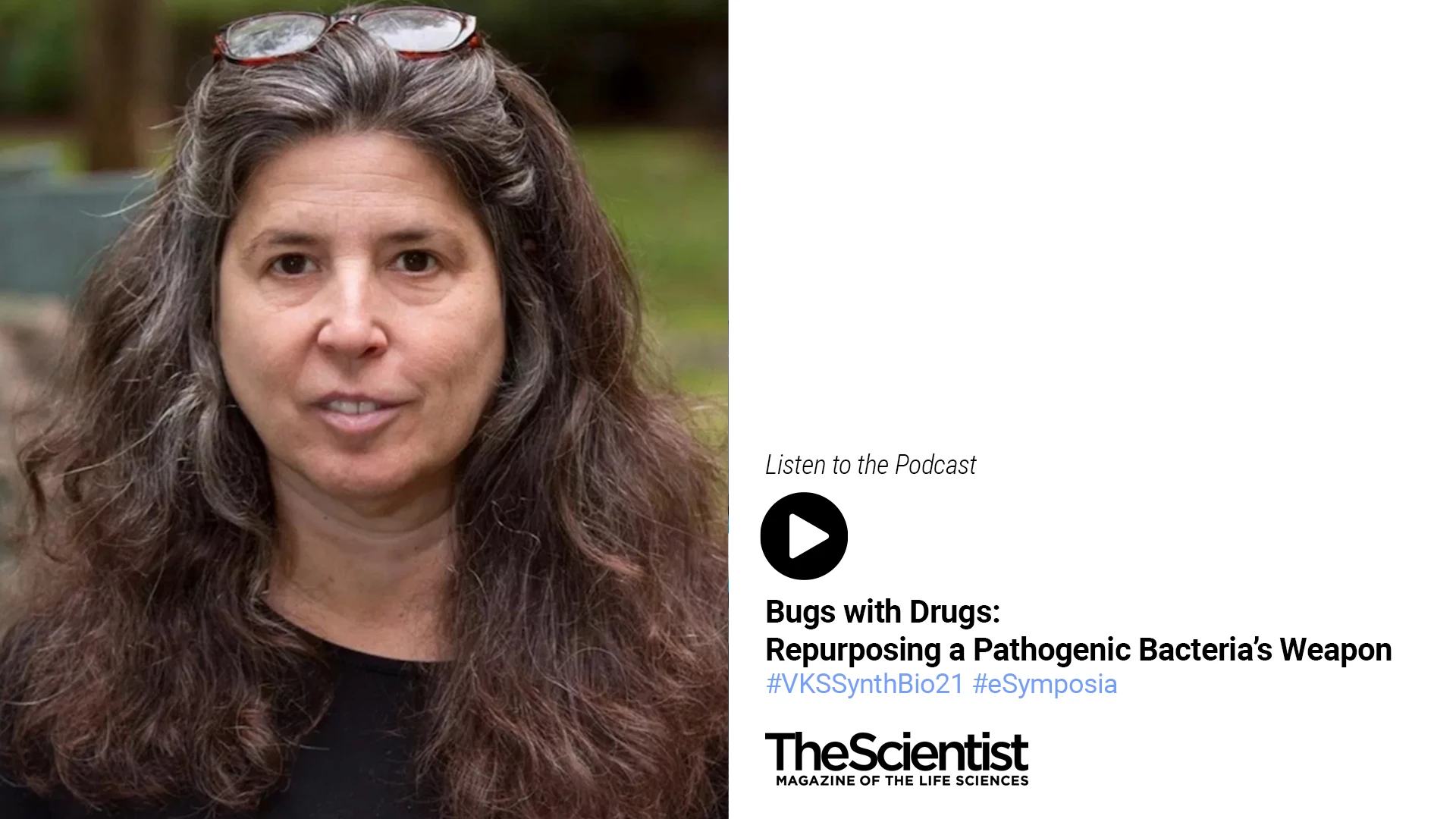
Synthetic Biology: At the Crossroads of Genetic Engineering and Human Therapeutics
May 3-4, 2021 | 10:00AM EDT | 2:00PM UTC | 4:00PM CEST*
*Program is in development and subject to change
Bugs with Drugs: Repurposing a Pathogenic Bacteria’s Weapon
Listen to The Scientist’s latest LabTalk podcast featuring Dr. Cammie Lesser, of Massachusetts General Hospital and Harvard Medical School, on her work designing probiotics to treat inflammatory bowel disease and other gut disorders. By engineering E. coli to secrete anti-inflammatory proteins called “nanobodies,” she is able to deliver treatment directly to the gut to block inflammatory cytokine signals. This novel approach has proven to reduce inflammation and reverse pathology in mouse models of colitis, while avoiding side effects related to systemic anti-inflammatory treatments.
Hear more about Dr. Lesser’s fascinating work in her presentation on Monday, May 3.
Spotlight on Innovation – Bioengineering Yeast to Sense and Treat IBD & Beyond
Discover how Dr. Francisco Quintana of Harvard Medical School genetically engineered yeast as a probiotic treatment for inflammatory bowel disease (IBD) in this exclusive KSQA interview. Quintana’s synthetic yeast can not only sense inflammation in the colon or small intestine, they respond by degrading the inflammatory signal eATP, thereby dampening immune responses. The resulting suppression of intestinal inflammation reverses IBD pathology like fibrosis, and promotes recovery of a healthy gut microbiome in various mouse models of colitis and enteritis. The engineered yeast even out-perform FDA-approved treatments for IBD, without the adverse side effects of systemic immune suppression. Ultimately this innovative approach could transform treatment options and quality of life for patients suffering with various intestinal diseases driven by eATP, including IBD, as well as irradiation-induced intestinal fibrosis in cancer patients, and even graft versus host disease in transplant patients.
The idea was born six years ago on a flight from Boston to Vancouver, BC, where Quintana was seated next to colleague Dr. Sergio Peisajovich. The two were on their way to a Keystone Symposia meeting on Inflammatory Diseases, and spent the flight brainstorming about how they might combine their expertise in molecular immunology and protein engineering to correct pathological immune signaling. Now their “pie in the sky” ideas have become a reality. Passing pre-clinical studies with flying colors, the synthetic yeast are now ready to launch into clinical trials.
Designing and developing a novel treatment from inception to clinic is an accomplishment that most scientists can only hope to accomplish by the end of their career, but for Quintana, this is just the beginning. He envisions adapting the platform against many other diseases, “simply” by engineering the yeast to sense different signals and/or respond with different actions, targeted to each disease case. It may not be so simple, but the highly modifiable yeast platform is suited for the challenge.
The yeast might even be engineered to treat diseases outside the gut itself. With an avid interest in the gut-brain axis, Quintana is eager to develop probiotics that trigger signals in the gut that will act to modulate activities in the brain, for the treatment of multiple sclerosis and other CNS disorders. In light of the recent explosion of evidence pointing to the gut’s central role in educating systemic immune responses, this yeast probiotic platform is a powerful tool for modifying gut signaling to correct immune pathology throughout the body and in the context of diverse diseases. From autoimmune diseases to chronic inflammatory conditions, these innovative immune-modulating yeast have vast potential across all fields of medicine.

